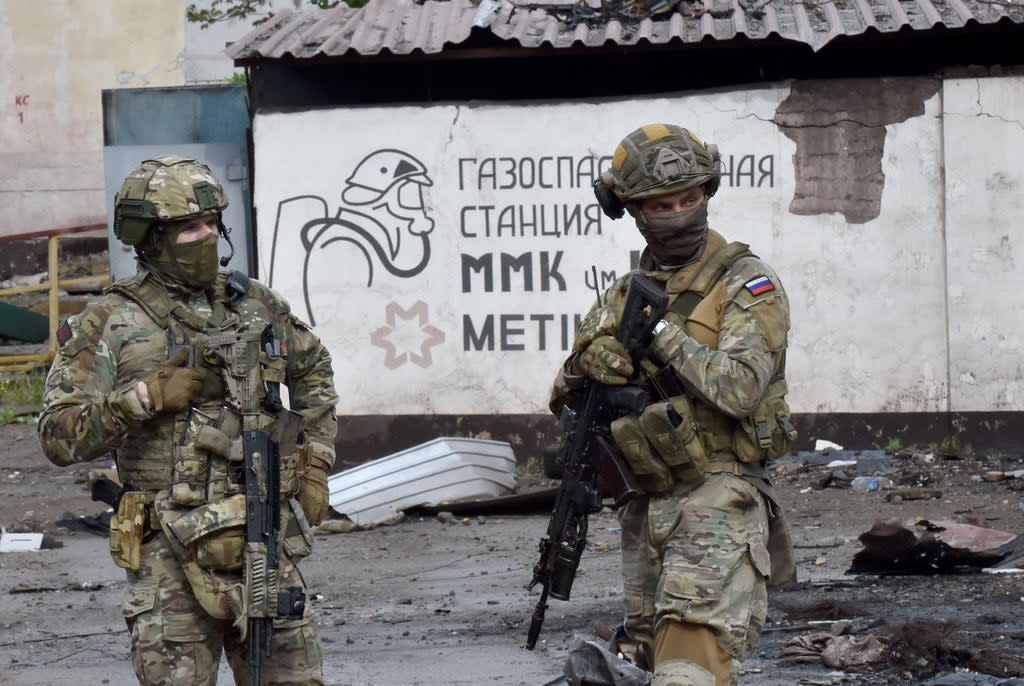Russia considers allowing over-40s to fight Ukraine war

Russia’s parliament could allow people over 40 to join the military, as it struggles to make territorial gains in eastern Ukraine.
Since it launched its invasion on 24 February, the Kremlin has reportedly been beset by heavy losses of personnel and military hardware. Exact numbers are disputed, but more than 15,000 Russian troops died in the first two months of the war, according to the British defence secretary Ben Wallace.
In an apparent effort to increase the strength of its depleted army, the Russian state Duma said on Friday that it would consider a bill to raise the age of military enrolment.
“For the use of high-precision weapons, the operation of weapons and military equipment, highly professional specialists are needed. Experience shows that they become such by the age of 40 to 45,” it said.
Currently, only citizens aged between 18 and 40 and foreigners aged between 18 and 30 can enter into the Russian military for the first time.
The lower house of the Russian parliament also said in a statement that it wants to streamline the recruitment of other specialists such as engineers and medics.
This is not the first time Moscow has sought to widen its pool of recruits. At the end of March, president Vladimir Putin signed a decree to conscript 134,500 people aged between 18 and 27.
Although the defence ministry denied the draft’s link to the conflict in Ukraine, it has previously acknowledged that some new recruits were sent across the border to fight earlier in the war.
Moscow’s reported decision to recruit Syrian mercenaries is another sign that it is trying to grow its army.
Responding to the potential lifting of the military age cap, Ben Hodges, a former US general, said it showed Russia’s desperation.
“Clearly, the Russians are in trouble. This is the latest attempt to address manpower shortages without alarming their own population,” he said.
“But it is growing increasingly difficult for the Kremlin to disguise their failures in Ukraine.”
Meanwhile, Jack Watling, a warfare expert at RUSI, a British security and defence think tank, said Moscow was running low on infantry.
“Russia needs to stabilise manning in its military units in Ukraine and generate new units if it is to improve its position on the ground,” he said.
“This will be a slow and complicated process, but can be accelerated by mobilising people with existing skills and military experience.”

